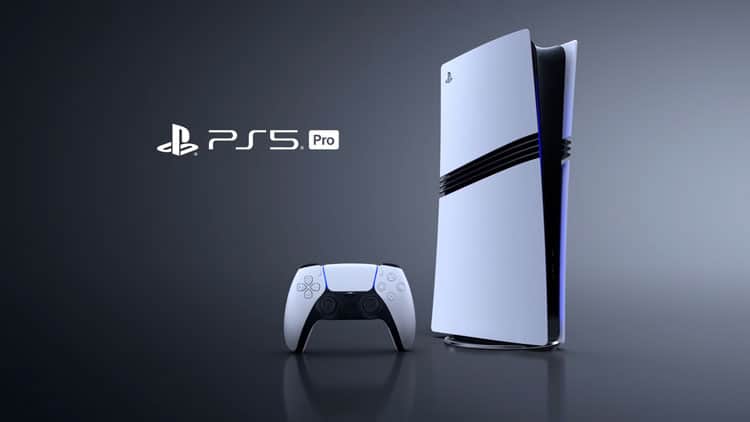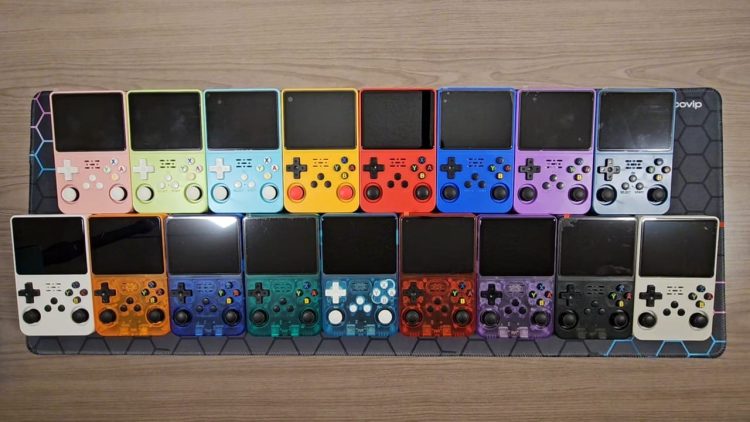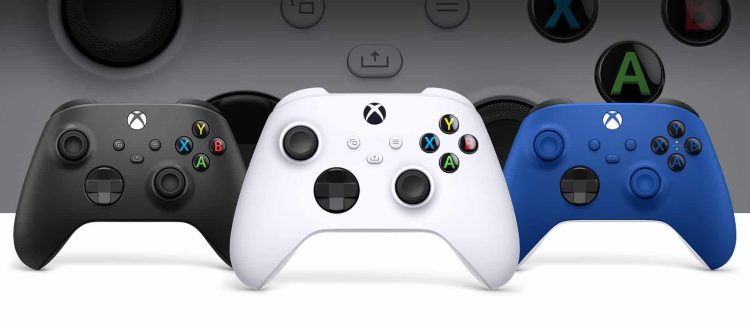Sony Released the PlayStation 5 Pro at notably higher prices than the “plain” PS 5, so it makes me wonder whether the 200 dollars or 300 euros higher prices justify the better GPU and the increase in storage spave. Read the full review to find out the outcome of my testing and data analysis.
The PlayStation 5 Pro is here, but it is too expensive, especially in Europe, where it is sold for almost 800 euros, while the PS5 Standard (Slim) goes for 519€. In the US market, the PS5 Pro is more affordable than the EU market, at $699, while the PS5 Slim goes for $500. So, why does Sony ask for 300 euros or 200 dollars more for the PS5 Pro? What did they change to ask for such a high amount?
PS5 Slim vs PS5 Pro (Specs)
| PS5 Pro | PS5 Slim | |
| Price | $699.99 / £699.99 / 799€ | $499.99 / £479.99 / 519€ |
| CPU Architecture / Clock Speeds | 8x Cores / 16x Threads – Zen2 @ 3.5GHz/3.85GHz | 8x Cores / 16x Threads – Zen2 @ 3.5GHz/3.85GHz |
| GPU Compute Units / Architecture | 60 CUs, RDNA 3 | 36 CUs, RDNA 2 |
| TFLOPS / GPU Clock Speed | 16.7 TF / 2.35GHz Max | 10.28 TF / 2.23GHz Max |
| Upscaling | PSSR (PlayStation Spectral Super Resolution Upscaling) | N/A |
| RAM | 16GB GDDR6 @ 18Gbps / 2GB DDR5 | 16GB GDDR6 @ 14Gbps |
| RAM Available for Games | 13.7GB | 12.5GB |
| Memory Interface / Bandwidth | 256 bit / 576 GB/s | 256 bit / 448 GB/s |
| Connectivity | WiFi 7, ethernet, Bluetooth 5.1 | WiFi 6, ethernet, Bluetooth 5.1 |
| Storage expansion | M.2 NVMe SSD slot; external storage via USB | M.2 NVMe SSD slot |
| Storage capacity | Custom 2TB SSD | Custom 1TB SSD |
| Ports | 1 x HDMI 2.1, 1 x Ethernet, 2 x USB-C, 2 x USB-A | 1 x HDMI 2.1, 1 x Ethernet, 2 x USB-C, 2 x USB-A |
| Weight | 6.8lbs / 3.1kg | 7.1lbs / 3.2kg |
| Dimensions (HxWxD) | 15.2 x 3.5 x 8.5in / 388 x 89 x 216mm | 14.1 x 3.8 x 8.8in / 358 x 97 x 224mm |
The improved GPU is the main asset of the PS5 Pro, which, thanks to the increased number of Compute Units and the faster memory that supports it, can improve rendering performance by up to 45%. Moreover, the newer generation RDNA 3 GPU offers better ray-tracing support, and there is also the AI-driven PlayStation Spectral Super Resolution (PSSR), which allows the PS5 Pro to deliver increased performance and higher graphics quality without sacrificing performance. For me, the second most crucial aspect of the PS5 Pro, besides the better GPU, is PSSR, which allows developers to fully exploit the hardware’s upscale capabilities and offer better graphics without a heavy impact on the frames per second.
You must use the appropriate software to exploit the PS5 Pro’s new capabilities fully. This means that all existing and upcoming game titles must consider the new hardware capabilities and exploit the increased horsepower. Otherwise, all these improvements will be in vain. This means extra work for developers; I am not sure they will be happy about that. Lastly, the SSD’s storage space is doubled now, a welcome feature because 1 TB of storage in this PS5 Slim can quickly fill up if you install several games.
The last notable improvement is the support of Wi-Fi 7, meaning quicker downloads as long as you have a compatible access point. Continuing with the console specs, it makes an impression that although the PS5 Pro is taller than the PS5 Slim and the differences in width and depth aren’t that high, it still weighs about 100 grams less. Despite the stronger GPU, its cooling system is not beefier than the PS5 Slim.
I should note here that I will compare the PS5 Pro to the “plain” PS5 model (not the slim one) because I found buying the PS5 Slim model unnecessary. Also, Sony didn’t provide my PS5 Pro review sample, but I bought it out of my pocket.



Valorant is a competitive FPS by Riot Games. In 5v5 tactical battles, agents fight using unique abilities. Weapons and abilities can be purchased with Valorant VP Satın Al.